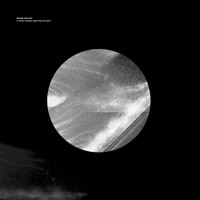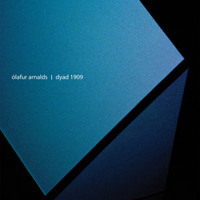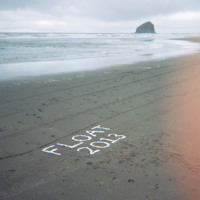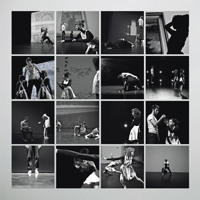LOADING...
Image via Unsplash.

Save (15)
Sounds like:
Hauschka,
Marsen Jules,
Mogwai,
Jasper TX,
My Bloody Valentine
Why do we like this?
London-based artist Donato Wharton makes ambient music that's hard to define in words. Minimalist and abstract, he produces gorgeous tracks inspired by reified imagination and vast empty spaces. While I'll admit that not everyone is as keen on Donato's music as I am right off the bat, I think you'll find that listening to his music can be both a relaxing and engaging experience that puts more well-known, similar artists to shame.
Indie Shuffle got the chance to sit down with Donato and hear his thoughts on life as a sound designer, the recording industry, and ambient music in a globalized world. Check it out below.
So, tell us a little about yourself.
Well I was born in Wales and then grew up in England and Germany. I moved around a bit in my youth but finally settled in the city of Stuttgart where I started to make music. As a child, I played classical piano and guitar but it wasn't until I got into listening to the more modern stuff like My Bloody Valentine -- that sort of noise, studio-based guitarwork - that got me into what I'm doing today. In fact, Loveless was an important album not only for me but - in my opinion - for all laptop producers who are guitarists. It was at that point when computers first started becoming avaliable to the point that you could have a home studio and have complete control over your own work. Layering hundreds of tracks suddenly became possible. Artists, including me, began thinking about composition not in terms of riffs and songs but textures and sounds. It was after working as a sound technician and studio artist for a while that I decided I wanted to make my own work rather than work for other musicians so I started to make music in my own name.
What would you have to say to someone who's never heard your type of music before?
Ambient music rewards deep listening. It's music that hopefully engages peoples' concentrations. I personally want my music to open a space in my listeners' imaginations to work in. I think that's the main purpose of my, and ambient, work. People often comment that, when listening to the music I've made, their minds start working and they imagine things or go into their memories or experience intense emotions of some kind. I think, to me, music is about opening up a quite private space for the individual listener to inhabit. I think of it like this: maybe because the world is very loud and very fast, there isn't much space to quietly be within yourself and that ambient music can fulfill a kind of need for some for a quiet space to not be bombarded with stuff all the time but actually instead just listen in. I would hope my music doesn't try to drag you somewhere or sell you something or even overload you with information. If you do decide to listen deeply to some of my songs - you'll start to see an interesting structure within the sounds themselves.
Do you separate your work as an artist with your "day job" as a sound designer? What's the relationship between the two?
My work as a sound manager is to help implement the sound design at venues that my company (Ex Machina) tours at. Sound design for me is a profession rather than an art. I do it primarily to be able to support making my music. It's a very different kind of work - it's a service profession. You can work creatively but you don't have final say and you are working towards a greater unified product. Sound design is not an autonomous art like making music is.
What was the main inspiration for your new album?
The experience of the Canadian winter was a big influence for me. I had been living in Canada three winters in a row - 2008, 2009 and 2010 - because of my theatre work. I was heavily influenced by the cold environment and pristineness of the snow - you know, just the juxtaposition in the sense of space that I associated with Canada in comparison to Europe where everything was much more spacious rather than rushed. Also: all those plane rides were a big part of the construction of the album - for example, the song "A Vast White Solitude" was actually my internalization of what it felt like to look at Greenland from a plane - just endless, beautiful, white, empty space.
Would you then say you create your music as an immediate inspiration? As in, you saw that vastness in Greeland from the plane and were compelled to make the song?
No - I wouldn't say that. I wasn't immediately struck to make a piece based on things I saw but rather giving myself distance and reflecting on it played a big role in my work. My music is a reimagined experience, memories of a landscape.
So your songs are encapsulations of memories?
Well, I would say that my music is reified imaginiation - imagination turned into something tangible. It's not necessarily a direct representation but rather process through memory and imagination. While the seed for a piece might come from an experience, the actual act of making the music is sonic. So I'll have some sound or I'll play something on the guitar then choose a small fraction of it. From that, I'll build. I'm always listening. It's not like I sit down with the intention of writing a piece right now. I make little recordings, listen back, find something that suggests I can continue with that and then build from there. I'm always listening to what a piece might suggest rather than trying with intent to make something new. The sounds themselves start suggesting space or time.
Do you agree that your songs are soundscapes, i.e. vastly immersive worlds of detail and definition?
Well to me, soundscapes are strictly R. Murray Schafer's definition: the sounds that surround us everyday. Sort of like tuning into the real world of sounds and really listening in. So, sitting here for example, we have people chattering and a boat passing on the river and this bike passing by and a plane overhead and the distant rumbling of the city. All of these things - that is thee soundscape. So, when it comes to describing music as a soundscape it's understanding musical composition as something total, something where the sound is the essence rather than the song or the track. I think sound-based music like mine in that sense is indeed all about the details, all about immersive listening rather than thinking of music in terms of harmony.
How do you feel about people who download your music for free?
I don't really mind. Once I put music out to the world - I've released it, I've let go of it. In a way, it's become part of the cultural fabric - it's "in the public domain". I think it's about what people get from engaging with your music that really matters.
Your music reminds me a lot of how visual designers love to utilize white space - the less the better. Can you tell me how that works?
I'm not trying to be minimal or minimalist on purpose. I work on a piece of music until I think there's nothing wrong with it - there's nothing left to change. At times this means I will add, other times take away. I rework something until it's finished: not because I'm done but because the music suggests nothing is wrong with it.
Would you be willing to work on soundtracks knowing that your music is well suited for that type of medium?
I've done music for dance theatre and I found it enjoyably challenging - seventy minutes of music for one piece. But I also found that I didn't have the time to properly listen to what I was doing, to work on something long enough to consider it as a piece of music in its own right that could be on a record. But, at the same time, with an interesting enough project - why not? It's not something I would categorically say no to. Although, I have tried to keep my music free from practical considerations: I am quite happy for people to use the music I've made in whatever context. If someone feels they want to make a film using some music I've done that's fine - but me actually composing to images? It would have to depend on what the project is.
What was it like to work with Serein records? Do you think their strategy - to market themselves as a boutique record label to a niche audience - is effective at getting music out?
It's been a positive experience with Huw Roberts (who runs the record label). He contacted me about releasing a new album at a time when I was actually just starting to make the music that would end up to be on "A White Rainbow...". Just talking with Huw - he seemed to have a good feeling for what I do and was just really interested in putting my music on his label. I like his concept of making a limited run for records (Serein only presses 500 copies of each release) since the reality of record sales is that you will not sell thousands of vinyls. I feel that, even though it's a small audience in numbers - it's still a global audience. That's something special about music nowadays - it speaks to the condition of modern life. You can have global connections limited to quite small groups of people through the Internet. Ambient music is a very small but global scene. People write to me from tons of far fung places commenting on the work that I'm doing and saying what it means to them. That's something interesting to consider.
Who's inspiring you right now? Do you look to see what other similar artists and composers like Marsen Jules and Hauschka are up to?
I've found myself surprisingly listening less and less to music over the years. I recently started listening a lot to the Japanese composer Toru Takemitsu. To me, his use of space is really inspiring in terms of form, phrasing and breathe of musical structure. I've also been listening to the field recordings of a Japanese guy named Toshiya Tsunoda and a record called Jailbirds by the Greek composer Novi Sad.
What's next?
I'm actually about to take a Master's at the Edinburgh College of Art in Digital Composition and Performance. The purpose is to find a concert form for my music or develop an installation within which to present my work. I'm trying to expand beyond just making records into something like spacialization. In short, I'm looking for new ways to present my work - new formats.
If you're interested in Donato's work, check out his website. If you like this sort of music, check out other releases by Serein Records or listen to other similar artists like Olan Mill, Hauschka, Jasper TX and Marsen Jules.
Indie Shuffle got the chance to sit down with Donato and hear his thoughts on life as a sound designer, the recording industry, and ambient music in a globalized world. Check it out below.
So, tell us a little about yourself.
Well I was born in Wales and then grew up in England and Germany. I moved around a bit in my youth but finally settled in the city of Stuttgart where I started to make music. As a child, I played classical piano and guitar but it wasn't until I got into listening to the more modern stuff like My Bloody Valentine -- that sort of noise, studio-based guitarwork - that got me into what I'm doing today. In fact, Loveless was an important album not only for me but - in my opinion - for all laptop producers who are guitarists. It was at that point when computers first started becoming avaliable to the point that you could have a home studio and have complete control over your own work. Layering hundreds of tracks suddenly became possible. Artists, including me, began thinking about composition not in terms of riffs and songs but textures and sounds. It was after working as a sound technician and studio artist for a while that I decided I wanted to make my own work rather than work for other musicians so I started to make music in my own name.
What would you have to say to someone who's never heard your type of music before?
Ambient music rewards deep listening. It's music that hopefully engages peoples' concentrations. I personally want my music to open a space in my listeners' imaginations to work in. I think that's the main purpose of my, and ambient, work. People often comment that, when listening to the music I've made, their minds start working and they imagine things or go into their memories or experience intense emotions of some kind. I think, to me, music is about opening up a quite private space for the individual listener to inhabit. I think of it like this: maybe because the world is very loud and very fast, there isn't much space to quietly be within yourself and that ambient music can fulfill a kind of need for some for a quiet space to not be bombarded with stuff all the time but actually instead just listen in. I would hope my music doesn't try to drag you somewhere or sell you something or even overload you with information. If you do decide to listen deeply to some of my songs - you'll start to see an interesting structure within the sounds themselves.
Do you separate your work as an artist with your "day job" as a sound designer? What's the relationship between the two?
My work as a sound manager is to help implement the sound design at venues that my company (Ex Machina) tours at. Sound design for me is a profession rather than an art. I do it primarily to be able to support making my music. It's a very different kind of work - it's a service profession. You can work creatively but you don't have final say and you are working towards a greater unified product. Sound design is not an autonomous art like making music is.
What was the main inspiration for your new album?
The experience of the Canadian winter was a big influence for me. I had been living in Canada three winters in a row - 2008, 2009 and 2010 - because of my theatre work. I was heavily influenced by the cold environment and pristineness of the snow - you know, just the juxtaposition in the sense of space that I associated with Canada in comparison to Europe where everything was much more spacious rather than rushed. Also: all those plane rides were a big part of the construction of the album - for example, the song "A Vast White Solitude" was actually my internalization of what it felt like to look at Greenland from a plane - just endless, beautiful, white, empty space.
Would you then say you create your music as an immediate inspiration? As in, you saw that vastness in Greeland from the plane and were compelled to make the song?
No - I wouldn't say that. I wasn't immediately struck to make a piece based on things I saw but rather giving myself distance and reflecting on it played a big role in my work. My music is a reimagined experience, memories of a landscape.
So your songs are encapsulations of memories?
Well, I would say that my music is reified imaginiation - imagination turned into something tangible. It's not necessarily a direct representation but rather process through memory and imagination. While the seed for a piece might come from an experience, the actual act of making the music is sonic. So I'll have some sound or I'll play something on the guitar then choose a small fraction of it. From that, I'll build. I'm always listening. It's not like I sit down with the intention of writing a piece right now. I make little recordings, listen back, find something that suggests I can continue with that and then build from there. I'm always listening to what a piece might suggest rather than trying with intent to make something new. The sounds themselves start suggesting space or time.
Do you agree that your songs are soundscapes, i.e. vastly immersive worlds of detail and definition?
Well to me, soundscapes are strictly R. Murray Schafer's definition: the sounds that surround us everyday. Sort of like tuning into the real world of sounds and really listening in. So, sitting here for example, we have people chattering and a boat passing on the river and this bike passing by and a plane overhead and the distant rumbling of the city. All of these things - that is thee soundscape. So, when it comes to describing music as a soundscape it's understanding musical composition as something total, something where the sound is the essence rather than the song or the track. I think sound-based music like mine in that sense is indeed all about the details, all about immersive listening rather than thinking of music in terms of harmony.
How do you feel about people who download your music for free?
I don't really mind. Once I put music out to the world - I've released it, I've let go of it. In a way, it's become part of the cultural fabric - it's "in the public domain". I think it's about what people get from engaging with your music that really matters.
Your music reminds me a lot of how visual designers love to utilize white space - the less the better. Can you tell me how that works?
I'm not trying to be minimal or minimalist on purpose. I work on a piece of music until I think there's nothing wrong with it - there's nothing left to change. At times this means I will add, other times take away. I rework something until it's finished: not because I'm done but because the music suggests nothing is wrong with it.
Would you be willing to work on soundtracks knowing that your music is well suited for that type of medium?
I've done music for dance theatre and I found it enjoyably challenging - seventy minutes of music for one piece. But I also found that I didn't have the time to properly listen to what I was doing, to work on something long enough to consider it as a piece of music in its own right that could be on a record. But, at the same time, with an interesting enough project - why not? It's not something I would categorically say no to. Although, I have tried to keep my music free from practical considerations: I am quite happy for people to use the music I've made in whatever context. If someone feels they want to make a film using some music I've done that's fine - but me actually composing to images? It would have to depend on what the project is.
What was it like to work with Serein records? Do you think their strategy - to market themselves as a boutique record label to a niche audience - is effective at getting music out?
It's been a positive experience with Huw Roberts (who runs the record label). He contacted me about releasing a new album at a time when I was actually just starting to make the music that would end up to be on "A White Rainbow...". Just talking with Huw - he seemed to have a good feeling for what I do and was just really interested in putting my music on his label. I like his concept of making a limited run for records (Serein only presses 500 copies of each release) since the reality of record sales is that you will not sell thousands of vinyls. I feel that, even though it's a small audience in numbers - it's still a global audience. That's something special about music nowadays - it speaks to the condition of modern life. You can have global connections limited to quite small groups of people through the Internet. Ambient music is a very small but global scene. People write to me from tons of far fung places commenting on the work that I'm doing and saying what it means to them. That's something interesting to consider.
Who's inspiring you right now? Do you look to see what other similar artists and composers like Marsen Jules and Hauschka are up to?
I've found myself surprisingly listening less and less to music over the years. I recently started listening a lot to the Japanese composer Toru Takemitsu. To me, his use of space is really inspiring in terms of form, phrasing and breathe of musical structure. I've also been listening to the field recordings of a Japanese guy named Toshiya Tsunoda and a record called Jailbirds by the Greek composer Novi Sad.
What's next?
I'm actually about to take a Master's at the Edinburgh College of Art in Digital Composition and Performance. The purpose is to find a concert form for my music or develop an installation within which to present my work. I'm trying to expand beyond just making records into something like spacialization. In short, I'm looking for new ways to present my work - new formats.
If you're interested in Donato's work, check out his website. If you like this sort of music, check out other releases by Serein Records or listen to other similar artists like Olan Mill, Hauschka, Jasper TX and Marsen Jules.
Streaming source:
http://soundcloud.com/serein/donato-wharton-ink-mountains
SIMILAR SONGS
1

Sounds like:
Hauschka,
Nils Frahm,
Peter Broderick
By
David Peter Simon
on
Nov 29, 2011
|
Back in October, we were rendered speechless by Olafur Arnald's moving concept album, Living Room Songs. On December 5, Erased Tapes will finally be releasing a physical copy. Indie Shuffle was lucky enough to chat with the multi-instrumentalist from...
read more →
Save (129)
2
Sounds like:
Olafur Arnalds,
Hauschka,
Max Richter
By
David Peter Simon
on
Nov 18, 2011
|
Alright, it's time to take a break from all that hip hop and dubstep you've been enjoying. Wait, is that just me?Bosques de Mi Mente (Forests of My Mind) is a solo project begun back in mid-2007 that reflects on restlessness and melancholy. The Spani...
read more →
Save (157)
3

Sounds like:
Hauschka,
Nils Frahm
By
David Peter Simon
on
Sep 16, 2013
|
I'm excited to share that Peter Broderick is re-releasing his debut album, Float. This time, friend and co-collaborator Nils Frahm helped with the mastering of the tracks. What we have here is pure magic, compiled in the form of 10 songs.Float is one...
read more →
Save (162)
4

Sounds like:
Steve Reich,
Hauschka,
Nils Frahm
By
David Peter Simon
on
Jan 3, 2013
|
An oldie but goodie from the always spectacular Peter Broderick and the Erased Tapes crew. I've been binging on this score conceived by Broderick for a modern dance by Adrienne Hart for a few weeks now. Like all of Broderick's material, the tracks a...
read more →
Save (86)
View more songs ↓
